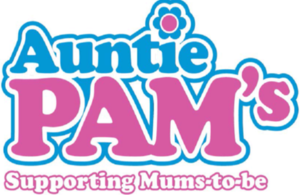Auntie Pam’s peer volunteer scheme helps mums-to-be in Kirklees
A support service for mums-to-be in Kirklees which has involved user-led service design and development.

Summary
Auntie Pam’s is a support service for mums-to-be in Kirklees. In setting up and running this with users we learnt how user-led service design and development can result in a cost effective service with many additional benefits to the community.
Background
Kirklees is between Manchester and Leeds with a population of approximately 400,000 living in a wide variety of communities, rural and suburban. The largest minority ethnic group is of South Asian origin, making up approximately 12% of the total population. There are increasing numbers of Eastern European and African migrants.
The project received national funding because of concerns about the high infant mortality rate in the area compared to national statistics. There was some feedback that women found it hard to successfully engage with or access services. Following a successful trial period, the local Public Health directorate funded the service for approximately 16,000 women of childbearing age and their families, with centres in Dewsbury and Huddersfield. It is now run by the local authority.
What was involved?
Auntie Pam’s helps mums-to-be and new mums with support for pregnancy, parenting and access to services.
Women across Kirklees were asked what they needed. Social marketing revealed it was important for them not to feel judged and that available services were often telling them how to parent. They preferred to be supported by “someone like them” for example, a mother who was familiar with their own situation (single parent, financial worries, economic background) and could relate to their needs.
As a result, it was decided to base the scheme around peer support with drop in access. Trained peer volunteers, who are all local mums, offer confidential one-to-one chats, a cuppa and a non-judgemental listening ear. Understanding the pressures that parents face, they offer continued support and signpost to other services when required. There is a chance to identify and talk through issues, prioritise needs, and find goals and solutions. Clients and volunteers are supported with “whole-life” approaches to social, economic and financial challenges.
A bespoke training package gave local volunteers training in motivational skills, behaviour change, loss and bereavement and other issues such as housing and benefits. This has led to Auntie Pam’s evolving into a skills programme as well as a support service.
Auntie Pam’s also runs a free ‘swap shop’/equipment store where families can borrow essentials like changing mats, buggies, cots, as well as accessing clothes for new born and older babies. Items can be swapped when outgrown.
Outcomes
Using the 6 outcomes areas listed below, we evaluated the service to assess how well it is continuing to meet the needs of those who stand to benefit from Auntie Pam’s involvement. It also looks to understand how clients and outcomes differ across time and the locations of the 2 centres.
- number of women who access the Auntie Pam’s service
- increased resilience to poor health behaviours and negative lifestyle circumstances
- improved emotional wellbeing, self-esteem and motivation
- number of women who successfully train as peer support volunteers
- improved and/or increased access to appropriate and timely services required by clients
- clients and volunteers involved in and influencing children’s and maternity services planning, development and delivery
Achievements
Auntie Pam’s has:
- had contact with approximately 2,000 clients over 8 years (in March 2018) via the drop-in centres, telephone enquiries, at the local post-natal ward or via other pregnancy support interventions
- trained volunteers who have learnt additional useful skills, gaining access to NVQs and going onto study midwifery degrees
- a minimum of 27 volunteers as the service continues to expand
The experiences of clients and volunteers is recorded as qualitative stories in a journey log.
Auntie Pam’s was awarded a national Local Government Chronicle community involvement award in 2016 and awarded the Duke of York Community Initiative Award in 2017.
What works well?
Social marketing helped to meet user needs and expectations. The volunteering approach allowed the service to develop in a cost efficient way and has substantial benefits to those receiving training.
Dee Haigh-Elmore, Public Health Kirklees council said:
“We are continually learning from service users and our volunteers, who have often been service users as well. An example of this is the way the initial project has evolved from a pilot focused on young mums with specific needs, to a wider group of people including older mums and some dads and to address a much broader set of needs such as housing or benefit issues.
“We have seen very positive outcomes because we have really bought into a user-led, total planning approach. It has been central to the project design and continued management, and is not a superficial aspect which is added on.”
The most important advice that we can give to others starting a similar project is that local services should be user-led and not service-driven to achieve the best results in a cost effective way.
Next steps
The service will continue with volunteering and service user feedback at its heart. This includes exploring more options away from drop in centres as these don’t work for everyone. Training and support to volunteers will also continue to develop. We plan to work across the council to develop user driven approaches more widely.
Further information
For more information please contact: Dee Haigh-Elmore, Public Health, Kirklees Council